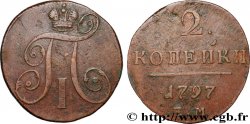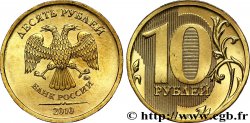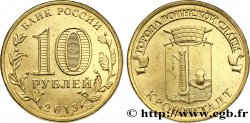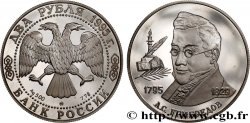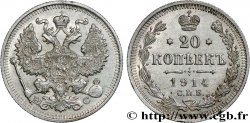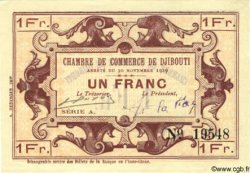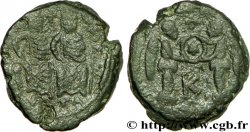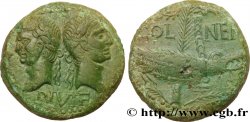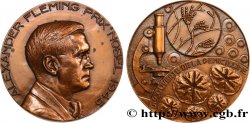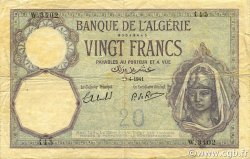fwo_529927 - RUSSIA 2 Kopecks aigle bicéphale 1811 Ekaterinbourg
Not available.
Item sold on our e-shop (2021)
Price : 70.00 €
Item sold on our e-shop (2021)
Price : 70.00 €
Type : 2 Kopecks aigle bicéphale
Date: 1811
Mint name / Town : Ekaterinbourg
Quantity minted : 127003400
Metal : copper
Diameter : 29,8 mm
Orientation dies : 12 h.
Weight : 12,91 g.
Edge : lisse
Catalogue references :
Obverse
Obverse legend : 1811.
Obverse description : Aigle bicéphale couronné.
Reverse
Reverse legend : (LÉGENDE EN CYRILLIQUE) 2 / КОПѢЙ / КИ. / Е.М..
Reverse description : couronne et rameaux.
Commentary
Nicolas Ier (7/07/1796-2/03/1855), second fils de Paul Ier, est le frère d'Alexandre Ier et du grand-duc Constantin. À la mort de son frère Alexandre Ier, le 1er décembre 1825, et après le renoncement de son frère Constantin, il devient tsar de toutes les Russies et commence par réprimer le mouvement libéral des Décembristes puis le soulèvement de Pologne en 1831. Après avoir favorisé la libération de la Grèce, il se pose comme un défenseur des Slaves et s'oppose aux Turcs. Il trouve sur sa route les Anglais et les Français. Il meurt avant la défaite de la guerre de Crimée.
Nicholas I (7/07/1796-2/03/1855), second son of Paul I, is the brother of Alexander I and Grand Duke Constantin. On the death of his brother Alexander I, on December 1, 1825, and after the renunciation of his brother Constantine, he became Tsar of all the Russias and began by repressing the liberal movement of the Decembrists and then the uprising in Poland in 1831. After favoring the liberation of Greece, he poses as a defender of the Slavs and opposes the Turks. He finds on his way the English and the French. He died before the defeat of the Crimean War
Nicholas I (7/07/1796-2/03/1855), second son of Paul I, is the brother of Alexander I and Grand Duke Constantin. On the death of his brother Alexander I, on December 1, 1825, and after the renunciation of his brother Constantine, he became Tsar of all the Russias and began by repressing the liberal movement of the Decembrists and then the uprising in Poland in 1831. After favoring the liberation of Greece, he poses as a defender of the Slavs and opposes the Turks. He finds on his way the English and the French. He died before the defeat of the Crimean War








 Report a mistake
Report a mistake Print the page
Print the page Share my selection
Share my selection Ask a question
Ask a question Consign / sell
Consign / sell
 Full data
Full data